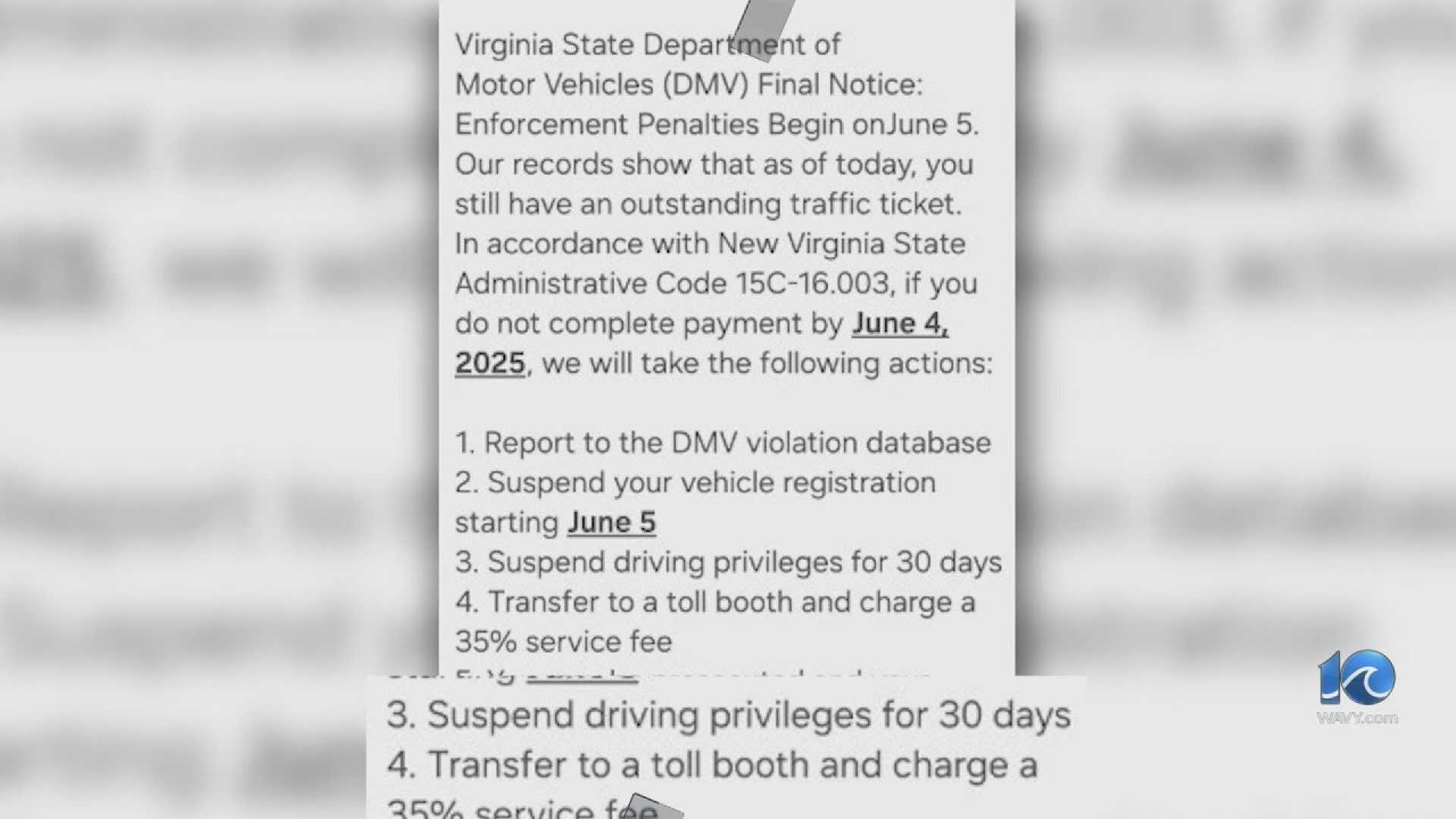News
Virginia DMV Warns of New Text Message Scam Targeting Drivers

RICHMOND, Virginia — The Virginia Department of Motor Vehicles (DMV) has issued a warning about a new text message scam targeting residents across the state. In a recent alert, officials stated that fraudsters are impersonating the DMV to threaten individuals with unpaid traffic tickets that could lead to license suspension.
Recipients of these deceptive messages are informed that they owe money for overdue fines and are urged to click a link to pay immediately. However, the DMV emphasizes that these messages are fraudulent and that the agency does not send text messages demanding payments.
“The DMV will never send you text messages demanding payment for fines or fees,” said DMV Commissioner Gerald Lackey. “We urge our customers to be vigilant and avoid sending your personal information via text.”
The scam aims to create a sense of urgency, pushing individuals to act quickly and without caution. Clicking the links included in these messages can lead to identity theft, as fake websites are set up to collect personal information.
The DMV offered guidelines for recognizing these and similar scams. Customers are advised not to click on any links in suspicious texts, regardless of how official they appear. Instead, individuals concerned about possible unpaid tickets should contact the DMV directly using official contact information.
Moreover, individuals can report these scam messages by utilizing their phone’s “report junk” or “report spam” features. They can also forward the message to 7726 (SPAM) or report it to the Federal Trade Commission at reportfraud.ftc.gov.
“Scammers count on people being distracted or worried,” said an FTC spokesperson. “Taking a moment to verify can protect you from identity theft.”
The DMV and the FTC are reminding Virginians to stay cautious with text messages that involve financial matters or personal information. Legitimate government agencies typically do not request payments or sensitive information in this manner, and individuals are encouraged to verify any unexpected communications directly through official channels.
The warning comes as scams are becoming increasingly sophisticated, often appearing in threads alongside genuine messages from government agencies, making them harder to detect. This highlights the importance of remaining vigilant against potential fraud.












